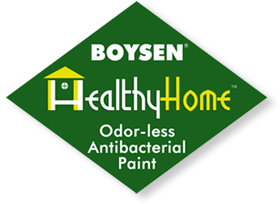HealthyHome™ Corner
The Good and The Not-So-Good News About Eggs

Maintaining healthy and protected homes for your family goes over and beyond keeping walls bacteria-free. It's a continuing commitment that covers all the basics from food-handling to household cleaning.
Now when it comes to food, it's a must for you to make sure you know how to properly handle food that looks safe (and yummy!) enough to eat but may hide deadly bacteria and allergens that can get pregnant women, the elderly and your kids seriously sick. For example, let's talk about a favorite food staple in every Filipino home --- Eggs.
Eggs are wonderful! Readily available, affordable and a good source of protein, Vitamin D, Vitamin A, Vitamin B2 and Iodine. It's so versatile that it can be served in all it's yummy glory either boiled, poached, scrambled, fried and of course, famously cooked as an omelette, too!
However, despite its healthful benefits, eggs can be deadly when uncooked and still in its shell. That's why it's important for you to know how to handle, store and cook eggs properly so you won't succumb to food poisoning caused by Salmonella bacteria and anaphylaxis, an egg allergy caused by the proteins of egg whites.
Here's how to keep eggs safe to eat for your family:
HANDLING EGGS: Bacteria can be found on the shell as well as the inside of an egg so you must be careful when handling "fresh" eggs. "Fresh" here means "uncooked eggs still in the shell."
- Keep "fresh" eggs separate from other foods when taken out of the refrigerator.
- Throw away cracked eggs as bacteria may seep from the shell and contaminate other foods.
- Wash eggs with warm soapy water before storing these in the refrigerator.
- Wash your hands thoroughly after handling fresh eggs.
- Clean all kitchen surfaces, utensils, and dishes thoroughly after using eggs in your food preparation.
STORING EGGS:
- Store eggs in a cool, dry place. The refrigerator would certainly come in handy for this.
- Use the refrigerator's egg shelf solely for eggs only. Do not mix stored eggs with other food on the egg shelf.
- As much as possible, eat eggs immediately after being served.
- Always consume stored eggs within the "best before" dates stamped on the egg carton.
- Avoid storing eggs with cracked shells in the refrigerator. You might not know it but dirt and bacteria might have seeped into the shell already.
COOKING EGGS:
- Cook eggs until both the whites and yolks are solid. Never eat eggs with runny yolks even if these have been cooked.
- If eggs are included in the ingredients of your recipe, make sure you cook the food very thoroughly, as in, piping hot.
- Try to stay away from food that had been made with fresh (uncooked) eggs like mayonnaise, ice cream, icing and some desserts. Read food labels to find out.


